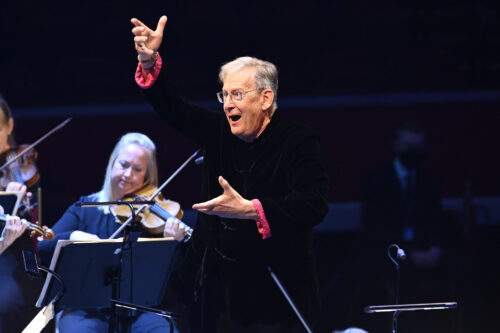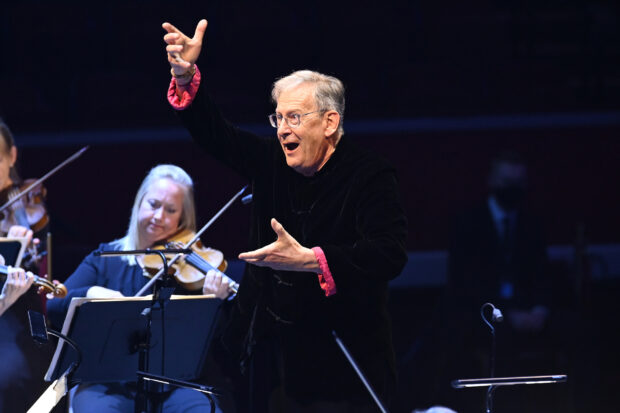 United Kingdom Mendelssohn, Elgar, Dvořák: Alice Coote (mezzo-soprano), Philharmonia Orchestra / Sir John Eliot Gardiner (conductor). Royal Festival Hall, London 16.2.2023. (JR)
United Kingdom Mendelssohn, Elgar, Dvořák: Alice Coote (mezzo-soprano), Philharmonia Orchestra / Sir John Eliot Gardiner (conductor). Royal Festival Hall, London 16.2.2023. (JR)

Mendelssohn – Hebrides Overture ‘Fingal’s Cave’, Op.26
Elgar – Sea Pictures, Op.37
Dvořák– Symphony No.5, Op.75
A concert with Sir John Eliot Gardiner on the podium can be guaranteed to be thoughtful, and so it was with this concert.
The first half was dedicated to the sea. Mendelssohn visited Scotland in 1829 and, after visiting Edinburgh, travelled up to the island of Mull and set out in a small boat for Fingal’s Cave. He was seasick, and whilst he did not manage to imbue the piece with the ‘whiff of seagulls, whale oil and dead fish’ (to use his own words), he did capture to perfection the ebb and flow of the Atlantic swell. Gardiner swayed through the piece like the waves and the orchestra caught his drift. The honeyed clarinets of Mark van de Wiel and Laurent Bin Slimane stood out, as they did throughout the concert.
Elgar composed his evocative series of Sea Pictures from the landlocked Malvern Hills, but the sea runs through each of the five songs set to five poems by different poets, including Elizabeth Barrett Browning and Elgar’s own wife Alice. There are definite echoes of Dream of Gerontius, particularly in the third song. The work was premiered by Dame Clara Butt; her immense vocal power was memorably and wittily captured by Sir Thomas Beecham: ‘On a clear day you could have heard her across the English Channel’. And it was just this vocal power that was missing from this evening’s performance. Coote, even from the rear stalls, was at times nigh inaudible, even though Gardiner kept his orchestral forces very restrained. Coote had sung ‘Where corals lie’ on BBC Radio 3 a few evenings ago, just with piano accompaniment, and it was charming. With the whole of the Royal Festival Hall to fill and an orchestra behind her, it was a different matter. I also have to say that Elgar wrote the piece for a contralto, the darkest of all female voices, and I find them most satisfying when sung more comfortably in those deep registers. Coote’s voice may be darkening at this stage of her career but she is still a mezzo. Her facial expressions and breath control (especially in the last song) were exemplary. Full marks to Gardiner for displaying surtitles and also bringing in the hall’s organ for added atmosphere in the third and fifth songs.
Dvořák’s Fifth Symphony is considered pastoral and, by some, a masterpiece which is performed too seldom. The opus number is deceptive: this is an early work and it even has traces of immaturity and some crude elements in the brass. The main theme is a winner but it is repeated too often, and the rest of the work lacks the composer’s usual gift for melodic invention. Nevertheless, we should be grateful to hear the work rather than yet another performance of Symphonies 7, 8 or 9. Gardiner clearly admires the work and was masterful in unfolding the layers of the slow movement in particular. Gardiner, soon to celebrate his 80th birthday, whilst still full of energy, was perhaps not the ideal conductor to inject swirl into the Scherzo; nevertheless, he did the work proud and all sections of the orchestra sounded on world-class form under his stewardship.
John Rhodes
